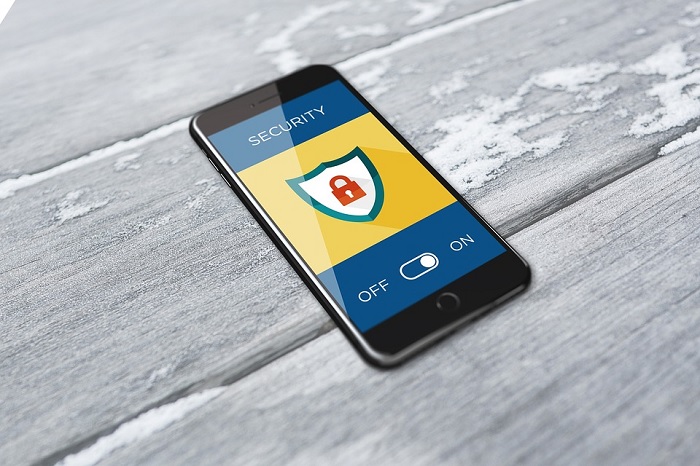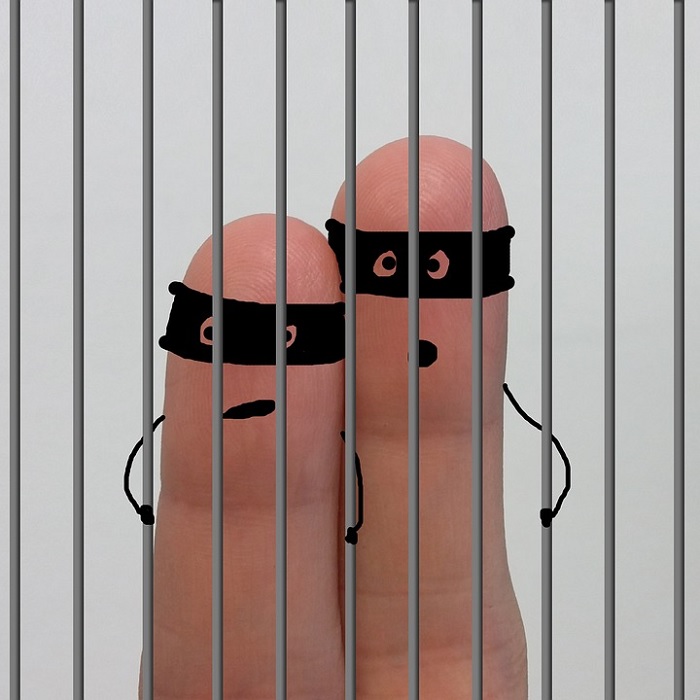
Take Control of Your Child’s Online Safety with this Guide
Having kids these days is an especially challenging task for good parents. There's more distraction and information around to pollute young minds than ever before. Still, our kids need to learn responsible technology use if they have any hope of succeeding as adults, so it's up to modern parents to put together a solid strategy to deal with the risks and challenges of giving kids access to the internet.
The goal is not to a totalitarian who rules with an iron fist. It's to act as a guide so that your kids benefit from technology while dealing with the potential harms in a healthy way.
There are two main fronts this battle is won on. Technological controls that keep an eye on their activity when you can't is one pillar of the strategy. The other is proper education on online habits and practices. After all, the goal is to turn your young ones into responsible netizens. It's not something you can accomplish overnight, but we can quickly build a strong foundation to help achieve that goal over time.
Technological Protection For Kids
These forms of online safety for children rely on software solutions to make sure no child is exposed to anything they aren't ready for.
Technology alone is far from enough for little Billy or Suzy to maintain their innocence, but it's a good place to start.
YouTube's Restricted Mode
https://youtu.be/4yek0Jb0sBg
YouTube is, I don't have to tell you, incredibly popular. It's also spawned an entire industry of amateur content creators. You can now make a living doing nothing but YouTube videos.
There's also a wealth of great kid's content on YouTube. There's plenty of amazing educational content and wholesome entertainment. You're probably already familiar with the general obsessions children have with videos featuring Minecraft.
There's also a lot of content that's pretty rough and YouTube's comment section is notoriously toxic. So it's a good thing that YouTube has a restricted mode. Here an intelligent filtering system automatically classifies content for maturity based on all sorts of data they've collected over the years. With restricted mode on those videos can't be watched and you can't read any comments at all!
To learn how to activate restricted mode, you can watch the above video or check out the multi-platform instructions here.
Internet Privacy Controls
Privacy is a big deal in the internet world. That's why every online platform, browser, and a piece of client software comes with various privacy settings.
When it comes to sites like Facebook or browsers like Chrome, you need to familiarize yourself with the different privacy options and what they all do. There's a comprehensive guide on Facebook's privacy settings which should answer any question you might have on the subject. Similarly, Google provides all the information you need when it comes to Chrome privacy settings.
In a similar vein, you'll find documentation detailing every system's privacy options. Although the company might not go out of its way to advertise them.
Security Software for Mobile Devices
These days your child is much more likely to access the internet through a mobile device such as a smartphone or tablet than a traditional PC.
To prepare your child's device for safe use, make sure it has a decent anti-virus package if it's an Android machine.
You might also want to invest in an app that limits screen time and keeps a record of what your child does online. Screentime is a multi-platform application that does just that and the basic account for one child is free!
Another powerful tool for Android devices is Google Family Link. It does essentially the same job as Screentime, but it's baked into the Google platform and is more powerful in general. I like the fact that it shows you per-app use times and lets you limit what apps can be used.
Apple also has parental controls known as Apple Restrictions. These let you disable apps and functions, while also limiting content.
If you cover all these bases handing over that phone or tablet comes with a lot less anxiety!
You can also do something similar on Windows computers by going to Settings>Accounts>Add a Family Member> Add a Child
Game Console Parental Controls
It's easy to think of gaming consoles as inherently kid-friendly, but video games are no longer an activity mainly enjoyed by children. So it's important to make sure your kids are playing age-appropriate video games.
All the major home console let you set parental controls that lock all games and content above a certain age restriction level. It's not just home consoles either the popular handheld Nintendo 3DS has parental controls.
Control Purchases
You've probably read the stories of kids running up massive credit card bills after getting their hands on mom's tablet or talking to Alexa. This has become such a problem that companies like Apple have started building in fail-safes against spend-happy children.
To ensure that you don't end up explaining to the card company why you bought $1000 worth of Pokemon GO coins, always choose a restrictive purchase setting.
Require a password for every purchase. Even if it's less convenient, just think how inconvenient it is not to have any money. Be especially mindful of settings that unlock purchases for a time after entering the password. Apple devices give you the option to not ask for a password sooner than 15 minutes after the last time. Believe me, a kid can buy a lot of stuff in 15 minutes if you let them.
Kid-friendly Browsers and Search Engines
The software community is well aware of the need to accommodate children on the web. That's why there are several web browsers and search engines that have been created with the explicit goal of keeping the little ones out of trouble.
Here are some examples of kid-friendly search engines:
Zoodles is one good example, but there are many options to choose from. If you don't want to get a special browser, you can also make use of the parental controls in Chrome.
Good Online Parenting Tips
There's only so much that you can do with technology alone. To really make sure that your child doesn't come to harm through the web you need both their trust and understanding. If you can get your child to be your partner in the quest for their protection you'll be head and shoulders above the problem.
Have "The Talk" About Internet Safety
We'd all like to keep our kids ignorant of the darker side of the world for as long as possible. Unfortunately, ignorance of real threats does nothing to protect them. In fact, it's that very innocence that nefarious types who target children rely on to get their way.
So it's better to sit down and have "the talk" with your kids as soon as they can understand it. Basically, if your child is old enough to operate a web-browser or social media app without help then they should be part of a conversation about its dangers with you.
Cyber bullying
Thanks to anonymity and the general nature of online platforms, various forms of cyber bullying are present on the internet. If your child is taking part in social media or using the comments sections on YouTube videos then they might get bullied.
Online video games where players can chat with each other are also a prime spot where this sort of thing happens.
It's important that you as a parent understand the best ways to deal with cyber bullies and help your child understand those coping strategies. Cyberbullying is serious and can lead to serious bodily harm thanks to the mental anguish it can cause.
These strategies can include:
- Learning how blocking filters work on social media
- Knowing how to report bullying behavior to admins
- Talking to an adult (in this case you!)
- Refraining from posting private information on public sites
Which brings us to the next big threat: online predators.
Online Predators
It used to be that you only had to teach your children not to talk to strangers and to avoid panel vans. Now there are child predators lurking in every corner of the web it seems. The news often reports on the awful things that these predators convince kids. We're also constantly reading about links to abusive sexual content that involves children as well as human trafficking.
It's every parent's worst nightmare and it is incredibly important to make your children understand that you should know about every person they speak with online.
If anyone makes them feel uncomfortable or starts to ask them questions that are far too personal then you should know about it and step in.
Online Piracy and File-sharing
Kids love movies and video games, but they aren't exactly flush with cash in general. So it makes sense that they would be tempted to download pirated copies of these media or get them from friends at school.
You should help them understand why piracy is wrong on a moral level. It's also important that they know about viruses that can come with file sharing. Whether online or by the direct trading of discs and drives.
Finally, remember to let them know that you could get in legal trouble if pirate downloads are traced back to your home.
Add Your Kids as Friends on Social Media
This might be the least popular move you could make from the point of view of the child. Still. one of the best ways to keep an eye on your children's social media activities is to be one of their friends.
Here's the thing though: your kids don't want this. So my advice is not to be an active participant in their activities. Don't embarrass them or remind them that you are also there. Just watch them make sure that everything is still OK.
Give Feedback On Their Social Media Posts
Given that you are a friend on your child's social media, you are in a position to guide them on their public face and activities. Don't be draconian and pick your battles. If you see them post a photo or write something that could put you at risk then you should privately tell them why you think sharing that information publicly might be dangerous.
The aim is to convince your child, not to force them to comply. Otherwise, they'll simply hide things from you rather than cooperate.
Think twice before you talk to them about a specific posting. Ask yourself whether what they posted is really problematic, or if you simply don't like it. If it's the latter you might end up suppressing their expression, which can only lead to resentment.
Do watch out for signs that your own child might be doling out abuse online themselves. No one wants to find out that their own offspring is a bully!
Take Control of Online Time
While we can use technology to limit the time that children spend online, it's important that you actively take part in their time management when it comes to being online and the other responsibilities of life.
You also need to understand that screen time is not a problem by itself, unless it's leading to health issues. It's more about what that screen time is being used for.
Time spent doing research for a homework project should not be counted against Minecraft play time. Yes, both happen on a screen, but they are entirely separate activities.
Don't be a Hypocrite - Set An Example
The most important item in this article is this: set a good example.
There's little point in laying down the law when it comes to your kid's online behavior when you're guilty of sloppy personal internet safety yourself. Check out my articles on safe internet browsing and general internet safety for a crash course.
You can also protect your whole family's privacy by investing in a VPN. Our VPN buyer's guide will get you on the right track and we've already listed what we think are the top five VPNs at the moment.
The bottom line is that if you expect your kids to follow these rules for their own good, then so so should you.















